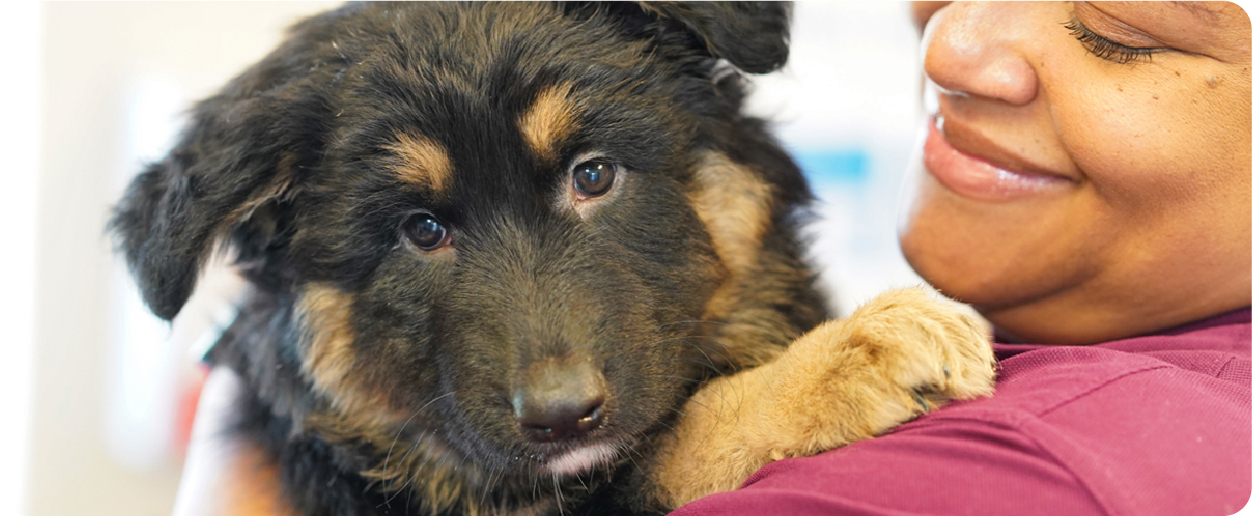Titre testing requires your pet to have a blood test which is then tested for immunity against the core diseases. As a veterinary practice, we feel vaccines are available to protect your pet however the frequency they are administered is often debatable.
At Milton Keynes Veterinary Group, we recommend vaccinating against the main diseases – parvovirus, distemper, infectious canine hepatitis and leptospirosis. Initially we strongly advise vaccinating all dogs as puppies twice (usually at eight weeks old and then at eleven to twelve weeks old), following the initial course a booster vaccination can be given one year later.
The protection from vaccinations for leptospirosis does not last a long time and we advise yearly booster vaccinations against this disease. However, the protection against the other diseases lasts longer, but it is not always for a lifetime. Therefore, we recommend a ‘booster’ for these diseases every three years. Kennel cough should be vaccinated against if your dog is in contact with other dogs regularly (e.g. dog shows as well as going to kennels or travelling).
Each vaccination and duration of protection varies from each individual dog and many dogs can have sufficient protection against one or more of the diseases at the point the next booster is due. If they still have sufficient protection then potentially vaccination may be delayed for that year. It is possible to blood test against parvovirus, distemper and hepatitis to measure antibody levels that will indicate whether your dog has protective levels of antibodies against these diseases. However, there is no such test for leptospirosis or kennel cough and therefore we recommend annual booster vaccinations to protect against these.
From previous studies regarding vaccinating and immunity, after four years after the last booster vaccination a third or more of dogs tested had a negative result to one or more of the three diseases, meaning vaccination is needed. This is why we vaccinate against Parvovirus, Infectious Canine Hepatitis and Distemper on a three yearly basis. In the case where your dog needs a vaccine against one disease and not all three, your dog would need to be vaccinated against all three as the viral components are mixed together to make up the vaccination preparation.
In some cases, we can gain false negative and false positive results on titre tests. False negatives are not too important, however false positive can lead you to believe your dog is immune when they are not and therefore would not receive a vaccination and not be protected. There are in-house titre tests as well as external laboratory titre testing available for the veterinary market.
We offer titre testing at Milton Keynes Veterinary Group, however this is a test that needs to be ordered in and therefore we need to know in advance of your appointment. Usually, dog titre testing works out more expensive than the vaccination alone. Vaccinations are safe and effective, and a substantial proportion of dogs that are titre tested can have a negative result to at least one disease and therefore a full vaccination is required (we cannot vaccinate against just one of the diseases due to the vaccination preparation). We regard antibody-titre testing as a useful resource, however comparatively poor value for money.

